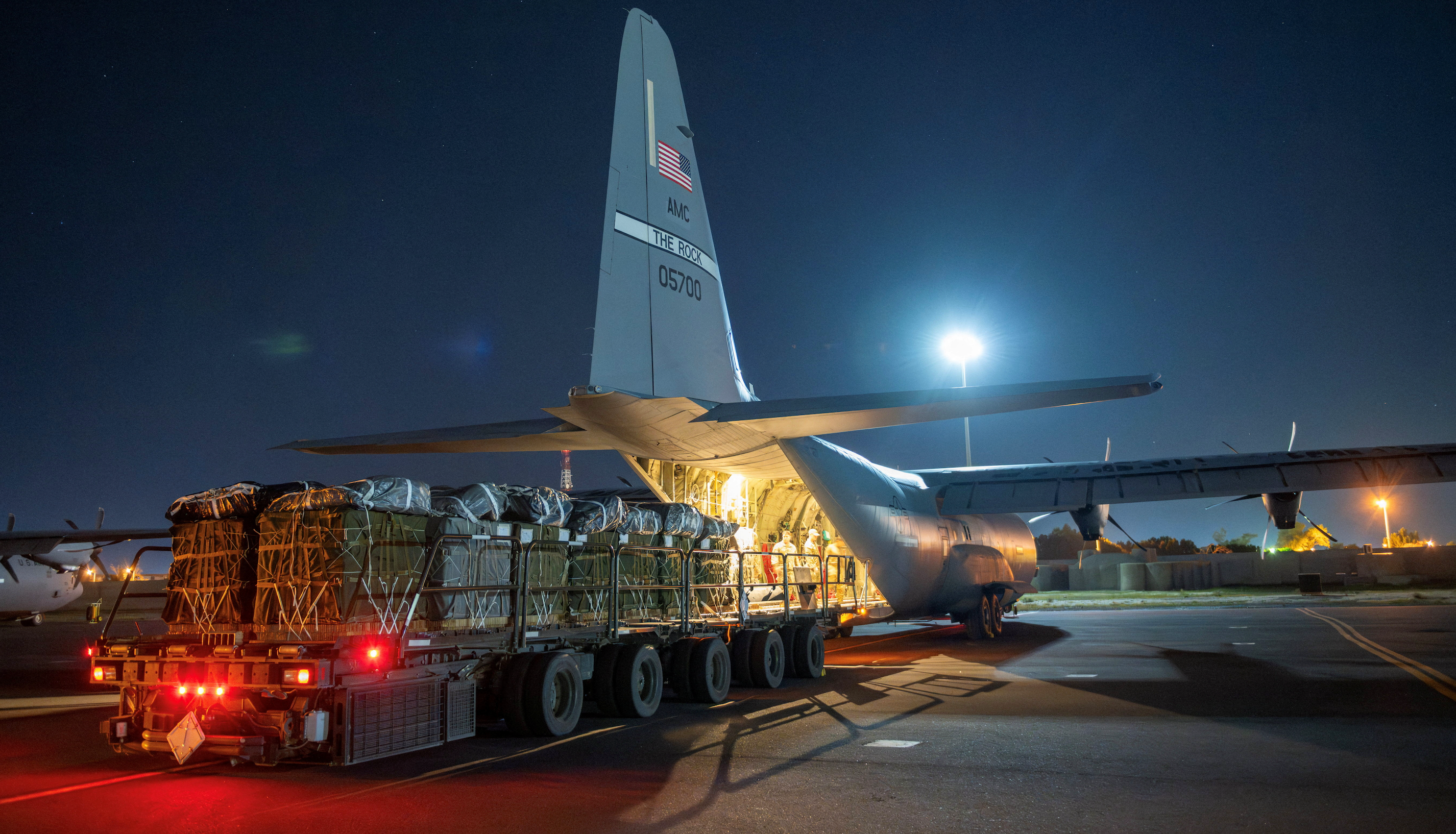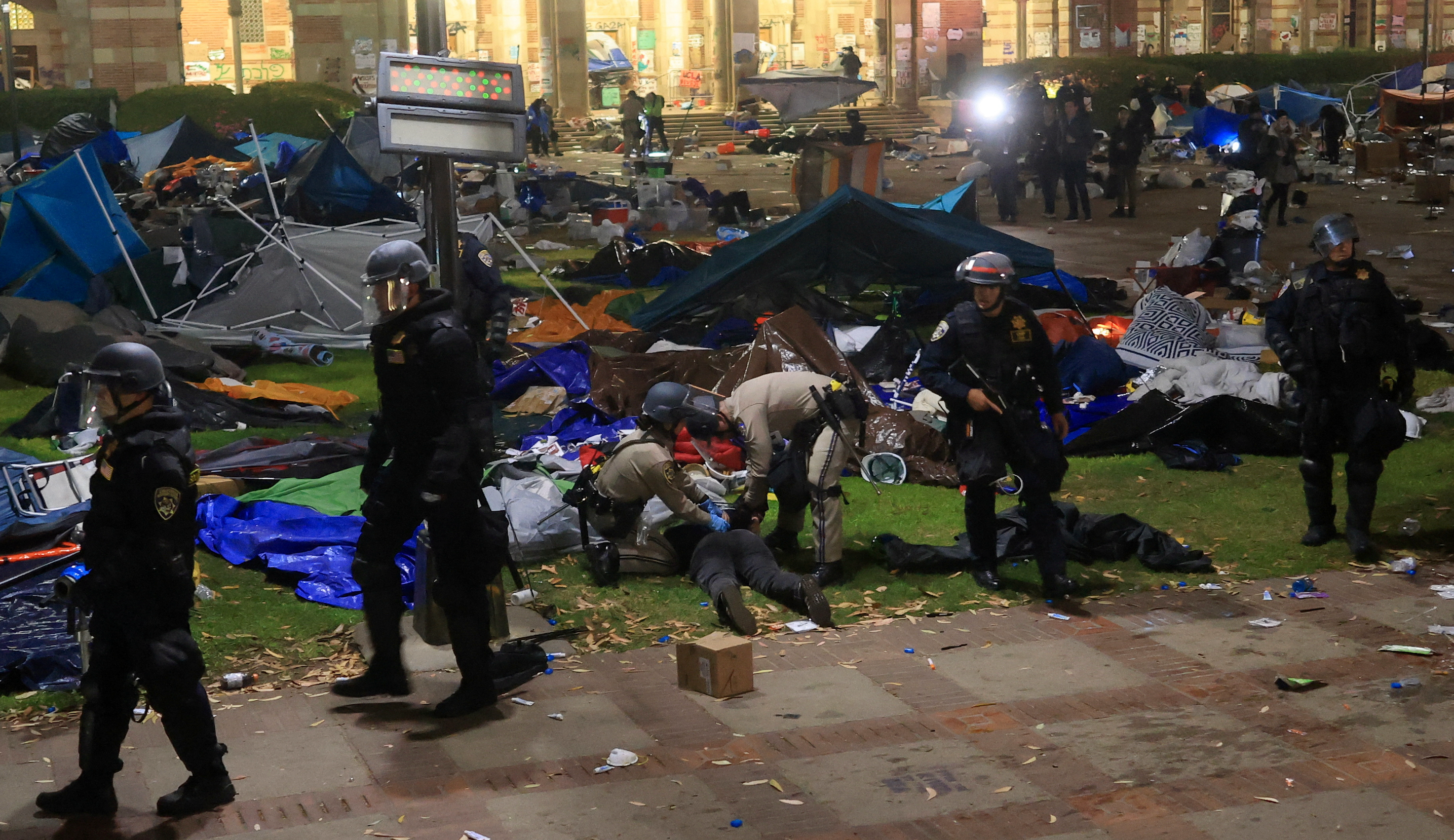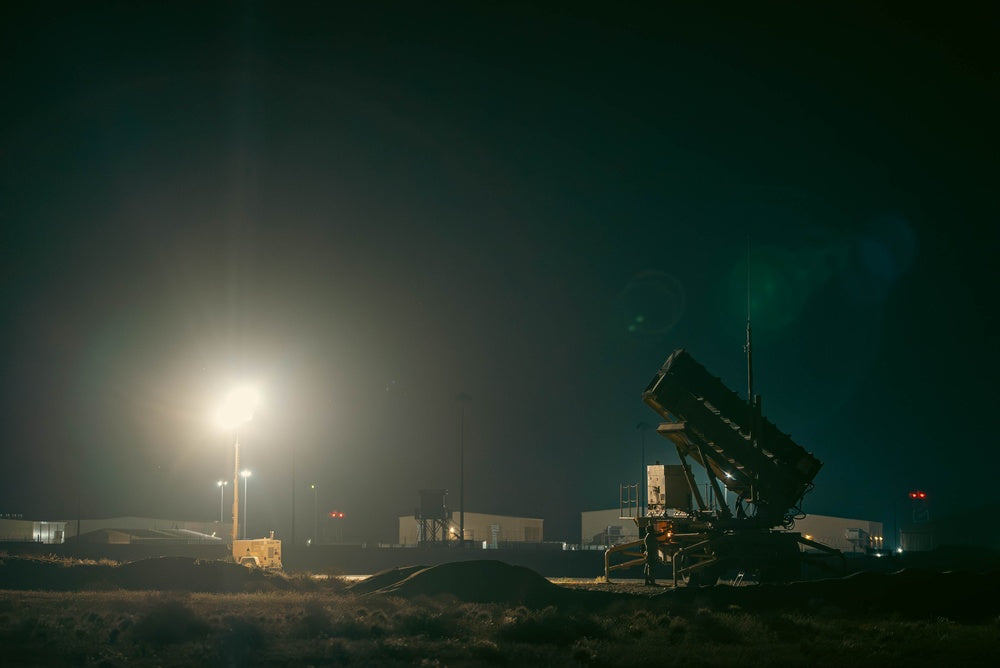
US calls out Israel and Hamas after Gaza aid shipment attacked by settlers, diverted by militants
PHOTO CAPTION: Over 38,000 Meals Ready to Eat and water destined for an airdrop over Gaza are loaded aboard a U.S. Air Force C-130J Super Hercules at an undisclosed location in Southwest Asia, March 1, 2024. U.S. Air Force/Handout via REUTERS
By Daphne Psaledakis and Simon Lewis
WASHINGTON (Reuters) - The U.S. on Thursday called on both Israel and Hamas to ensure that aid bound for civilians in Gaza is not disrupted, after a shipment from Jordan was attacked by Israeli settlers and subsequently diverted by Palestinian militants.
Secretary of State Antony Blinken viewed the aid on Tuesday just before it departed from the headquarters of the Jordan Hashemite Charity Organization in Amman bound for the newly opened crossing into Gaza at Erez.
The visit was part of a U.S. push to increase the aid getting to civilians in Gaza amid warnings of imminent famine after nearly seven months of war stemming from Hamas's Oct. 7 attacks in southern Israel.
Before the shipment reached the crossing, however, Jordan said it was attacked by Israeli settlers.
State Department spokesperson Matthew Miller told reporters that Blinken raised the incident with Israeli Prime Minister Benjamin Netanyahu in Jerusalem on Wednesday, and credited Israel for arresting three people involved in the attack.
"That's the step that they ought to take whenever there are attacks on aid convoys," Miller said. "Furthermore, they ought to prevent these attacks from happening in the first place."
The same aid convoy was later transferred to a humanitarian aid group to be distributed inside Gaza but was "intercepted and diverted" by Hamas, Miller said, adding that he believed the United Nations either had or was in the process of recovering the aid.
"It was an unacceptable act by Hamas to divert this aid to begin with, to seize this aid," Miller said.
"If there's one thing that Hamas could do to jeopardize the shipment of aid, it would be diverting it for their own use, rather than allowing it to go to the innocent civilians that need it. So they certainly should refrain from doing that in the future," Miller added.
(Reporting by Daphne Psaledakis and Simon Lewis; additonal reporting by Jasper Ward; Editing by Chris Reese and Paul Simao)









